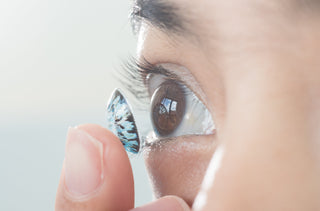At night, fewer cars circulate, but driving can be a little trickier than it is during the day. Dazzling headlights, reduced visibility, fatigue... Several factors can complicate night driving. Thus, it is important to be even more vigilant after dark. For some people, vision problems are magnified in the dark, even if their vision is good during the day time. The pupils are larger in low light conditions, which can cause distortion, as well as decrease visual acuity. To be safe while driving at night, it is important to make sure you have good vision. Here are some tips to help you see well while driving at night.
Adapt Your Driving
While driving at night, it is more difficult to see obstacles than during the day. Our field of vision is also not as wide, because headlights only illuminate part of what we see. To reduce the risk of accidents, reduce your speed when driving in the dark. If you are expected at a specific time, consider leaving earlier to avoid increased stress while driving.
Nowadays, car headlights are becoming more and more powerful and bright. They favour the driver, and can be unpleasant for drivers of oncoming traffic. When a car arrives in the opposite direction, avoid looking directly at the car’s lights to avoid being dazzled by them. In order to do this, turn your gaze slightly to the right, rather than forward.
If you feel tired, stop and take a break. It will give both your mind and your eyes a little rest. Your eyes are under stress while driving at night, so they really deserve a little break from time to time.
Take Care of Your Vehicle
Before leaving, make sure your windshield is clean inside and out, and that your windshield washer fluid tank is full. Dirt and splashing can reduce visibility, especially at night. Also remember to check your headlights. If mud or snow covers them, it can greatly reduce their range. During the winter, ventilate your vehicle to avoid fogging the windows and avoid reduced visibility that it may cause.
Wear Glasses With Anti-Reflective Lenses
If you wear glasses, make sure your lenses have a quality anti-glare coating that will provide clear vision at night. For example, Nikon's SeeCoat Bright coating improves contrast sensitivity, and helps make vision sharper in low light conditions. This type of lens is a great option to improve your vision while driving at night. It also has the distinction of making the colours more vivid and natural. Finally, this coating can also help you see more clearly the menu at the restaurant, where the light is often dimmed in the evening.
Have Your Prescription Updated
Of course, having the right prescription in your glasses or contact lenses is the best way to improve your vision at night. An eye exam will allow you to update your prescription, but also to detect eye diseases that could be related to a loss of visual acuity at night. To discuss vision and night driving, make an appointment with your optometrist at your local IRIS store.





















































